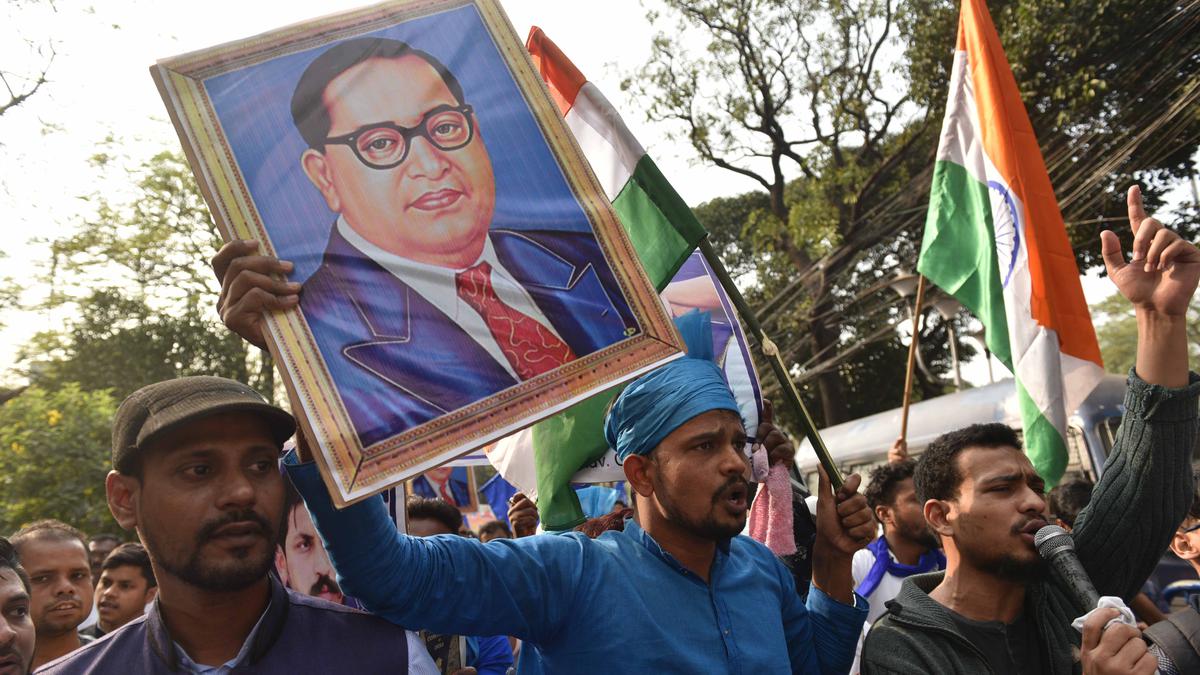
Calling out injustice: review of Aakash Singh Rathore’s ‘Becoming Babasaheb’
The Hindu
Aakash Singh Rathore’s Becoming Babasaheb is vivid, perceptive and absorbing, showing us milestones in Ambedkar's journey and his fight for equality
A new biography of Bhimrao Ramji Ambedkar is always a special event. As a major world figure of the 20th century who fought for social justice against the backdrop of a nation becoming free of foreign rule, his life and work continue to be an endless source of fascination to scholars and activists alike.
At the end of the 19th century, in British India, Ambedkar was born into the daily indignities of life as an untouchable; as a child, he was made to sit far from his other classmates, on a separate gunny cloth that the school cleaner would not touch; in Bombay, he was not allowed to study Sanskrit because of his caste. Despite it all, Ambedkar became the first member of the Mahar community to get a BA degree. He then travelled to Columbia University to study for a Masters as a student of Dewey; then, he got another Masters at the London School of Economics, at the same time working to qualify in law at Gray’s Inn. The only copy of his doctoral thesis was destroyed when the ship carrying it was bombed. Indefatigably, Ambedkar went on to write another thesis. He earned not one but two research doctorates, from LSE and Columbia.
Ambedkar’s burning quest for social justice and civil rights led him to be tireless in advocacy and direct action, launching publications, leading marches, starting a college, mentoring students and presenting insightful views to high-level committees. As a legislator, he performed his duties with high commitment, speaking brilliantly on subjects as diverse as university reform, maternity rights, and the rights of the marginalised. He was a key participant at the Round Table Conferences; Labour Member in the Viceroy’s Executive Council; first Law Minister of independent India; and chief architect of the Constitution. Every day, in the 21st century, the life of this tremendous intellectual and activist continues to be an inspiration to all those who care for social justice and equality.
Latest in the line of biographies of this exceptional and full life (among them, those by Eleanor Zelliot, Gail Omvedt, and Christophe Jaffrelot) is Aakash Singh Rathore’s work, Becoming Babasaheb: The Life and Times of Bhimrao Ramji Ambedkar, Birth to Mahad (1891-1929). Rathore is a philosopher and scholar who has worked extensively on Ambedkar. In Becoming Babasaheb, he shows us vivid glimpses of milestones on Ambedkar’s journey, including his life-changing leadership of the Mahad satyagraha.
Rathore notes that the period when the young Ambedkar was a student in New York was also the time of a new flowering of black consciousness, and the activism of the suffragists, among whom were Columbia students and faculty. This environment strengthened what Rathore describes memorably as “the irrepressibility of (Ambedkar’s) innate need to call out injustice.” Succinctly, in the final words of his MA thesis about the economic impact of British rule on India, Ambedkar writes: “The immenseness of India’s contribution to England is as astounding as the nothingness of England’s contribution to India.”
Going to Baroda to fulfil his bond, Ambedkar faced ugly discrimination. Rathore asks us to reflect on the intensely painful experience, quoting from Ambedkar’s memoir: “In the absence of the company of human beings I sought the company of books, and read and read. Absorbed in reading, I forgot my lonely condition. But the chirping and flying about of the bats, which had made the hall their home, often distracted my mind and sent cold shivers through me – reminding me of what I was endeavouring to forget, that I was in a strange place under strange conditions.”
Ambedkar’s return to Bombay changed the course of his life, and the life of the nation. Rathore’s retelling of this story is perceptive, elegant, and absorbing. He notes insightfully that in the earlier years, Ambedkar’s affable personal manner had tempered the bluntness of his remarks; but the violence in Mahad changed his perspective, and his editorials from this point were “pure fire.” Ambedkar chastised the British government for its claim not to interfere in age-old customs: “The custom of untouchability is not a lawful custom… Human rights in public life cannot be established by someone issuing an ordinance. It is inherent in every human being.”











